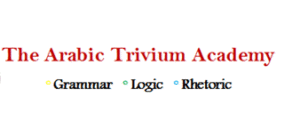The background picture in this audio recording is the late saint and sage of West Africa, Murābiṭ al-Hājj ould Faḥfū (may God sanctify his secret). He passed away on July 17, 2018. May he be raised amongst the righteous and prophets.
While living in his village in Mauritania, one of the things I always enjoyed and looked forward to was the ādhān (call to prayer). Muḥammad ‘Alī (may God sanctify his secret) was the official time-keeper and mu’dhdhin of Murābiṭ al-Hājj. On occasions, I would also hear the adhan of Shaykh Muḥammad Amīn ould ‘Abd al-Raḥmān (known as Shaykh Haddāmīn) (may God preserve and protect him). His chanting was heavenly and majestic. His voice was like the thunderbolt, lacerating through falsehood, only to make manifest the truth – “Truth hath come and falsehood hath vanished away. Lo! falsehood is ever bound to vanish.”
On some nights, Muḥammad ‘Alī would chant the ādhān for tahajjud (night vigil prayer) as well. His euphonious chanting would pierce through the night sky and “vast desert eternity.” Moroccans and Mauritanians have a unique, unpretentious style of Qur’ān recitation and chanting the call to the prayer. The natural melodies of their ādhān and Qur’ān recitation can have the power to captivate the hearts of those who listen attentively. With their unique style, one feels as though the past is ever present.
For the inauguration of our online Arabic school, The Arabic Trivium Academy, I wanted to do so with the chanting of the ādhān. Recently, I went to a nearby lake with my kids. There, I decided to call the ādhān, right at sunset. Coincidentally, it was a full moon night, with a sweet breeze blowing from the east. While walking back home, with only the light from the full moon, I felt as though I was in Twimrāt, the village of our master Murābiṭ al-Hājj ould Faḥfū (may God be pleased with him).
Our Mission
At The Arabic Trivium Academy our hope is to restore the centrality of the ʽulūm al-ālah (auxiliary sciences), namely naḥw (syntax), ṣarf (morphology), manṭiq (logic), and balāghah (rhetoric). Mastery of these tools will enable its practitioners to better navigate the classics, including, and most importantly, the sacred Islamic codices. This along with what Ibn Khaldun calls ta’ālīm (mathematical sciences), we hope will revive the classical approach to education and connect us to our glorious past.


